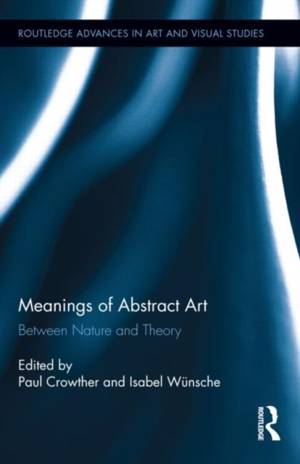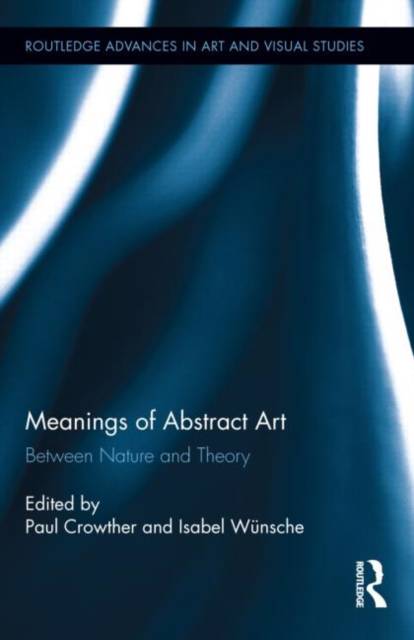
- Afhalen na 1 uur in een winkel met voorraad
- Gratis thuislevering in België vanaf € 30
- Ruim aanbod met 7 miljoen producten
- Afhalen na 1 uur in een winkel met voorraad
- Gratis thuislevering in België vanaf € 30
- Ruim aanbod met 7 miljoen producten
Meanings of Abstract Art
Between Nature and Theory
Omschrijving
Traditional art is based on conventions of resemblance between the work and that which it is a representation "of". Abstract art, in contrast, either adopts alternative modes of visual representation or reconfigures mimetic convention. This book explores the relation of abstract art to nature (taking nature in the broadest sense--the world of recognisable objects, creatures, organisms, processes, and states of affairs).
Abstract art takes many different forms, but there are shared key structural features centered on two basic relations to nature. The first abstracts from nature, to give selected aspects of it a new and extremely unfamiliar appearance. The second affirms a natural creativity that issues in new, autonomous forms that are not constrained by mimetic conventions. (Such creativity is often attributed to the power of the unconscious.)
The book covers three categories: classical modernism (Mondrian, Malevich, Kandinsky, Arp, early American abstraction); post-war abstraction (Pollock, Still, Newman, Smithson, Noguchi, Arte Povera, Michaux, postmodern developments); and the broader historical and philosophical scope.
Specificaties
Betrokkenen
- Uitgeverij:
Inhoud
- Aantal bladzijden:
- 310
- Taal:
- Engels
- Reeks:
- Reeksnummer:
- nr. 2
Eigenschappen
- Productcode (EAN):
- 9780415899932
- Verschijningsdatum:
- 19/06/2012
- Uitvoering:
- Hardcover
- Formaat:
- Genaaid
- Afmetingen:
- 155 mm x 231 mm
- Gewicht:
- 544 g

Alleen bij Standaard Boekhandel
Beoordelingen
We publiceren alleen reviews die voldoen aan de voorwaarden voor reviews. Bekijk onze voorwaarden voor reviews.










